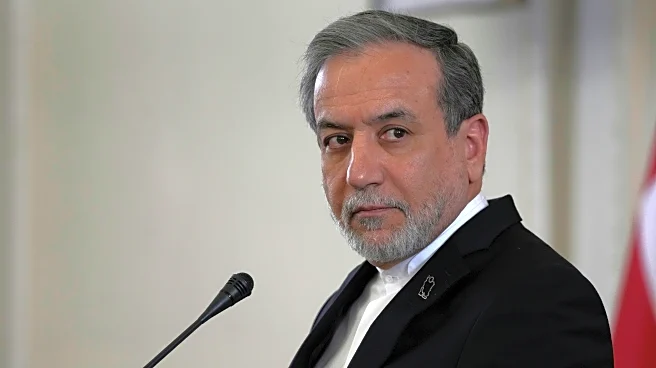Rapid Read • 8 min read
The Bangladeshi government has approved the purchase of 220,000 metric tonnes of wheat from the United States. This decision is part of a broader strategy to alleviate the high tariffs imposed by the Trump Administration and to ease trade tensions between the two nations. The wheat will be supplied under a government-to-government agreement at a price of $302.75 per ton, facilitated by a Singapore-based trading company. This purchase is part of a larger agreement signed in July, where Bangladesh committed to importing 700,000 tons of wheat annually from the U.S. over the next five years. Historically, Bangladesh has imported cheaper grain from the Black Sea region, but the U.S. wheat offers a higher protein content, which is essential for quality flour production.
AD
This wheat purchase signifies a strategic move by Bangladesh to diversify its grain sources and improve trade relations with the United States. The decision to import U.S. wheat, despite its higher cost compared to Black Sea grain, highlights the importance of quality in food production. The tariff relief efforts could potentially lead to more favorable trade conditions and increased economic cooperation between the two countries. For the U.S., this deal represents an opportunity to expand its agricultural exports and strengthen its trade presence in South Asia. The move also reflects Bangladesh's efforts to balance its import portfolio and ensure food security through diversified sources.
Bangladesh's delegation is currently in the United States for trade negotiations, which could lead to further agreements and increased imports of American goods. The purchase of 25 Boeing aircraft by Bangladesh on July 27 indicates a broader strategy to enhance trade relations with the U.S. As negotiations continue, both countries may explore additional avenues for economic collaboration, potentially impacting sectors beyond agriculture. The outcome of these discussions could influence future trade policies and agreements, shaping the economic landscape between the U.S. and Bangladesh.
The decision to import U.S. wheat, despite its higher cost, underscores the importance of quality in food production and the strategic value of trade diversification. This move may encourage other countries to consider similar strategies, balancing cost with quality in their import decisions. Additionally, the ongoing trade negotiations could set a precedent for future diplomatic and economic engagements between the U.S. and South Asian countries, potentially influencing regional trade dynamics.
AD
More Stories You Might Enjoy












